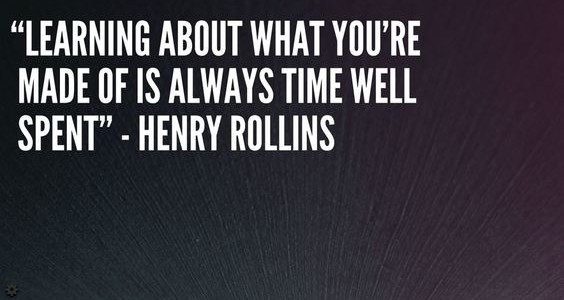
Improvise, adapt and overcome—the marine mantra that has played in the background of most of my adult life. With two parents who served in the Marine Corps. (I do not dare say “former” because they say “Once a Marine, always a Marine”), there was always a strong emphasis on resilience. For that I am eternally grateful.
I started thinking about adaptability after I read a very lofty article this morning, in which the author went on and on about the importance of being adaptable in our rapidly changing technological, economical and geopolitical global environment. He was trying to emphasize the benefits of adaptation and change, in response to the stress we experience as a result of these rapid societal changes.
While I appreciated his use of “I statements,” I couldn’t help thinking there was a missing piece in his argument. As someone who feels like I have an incredible amount of resilience, I believe that adaptability is NOT the only thing we need overcome adversity.
Sometimes it’s nice to hear someone say, “You can do it!” We can all definitely use a little cheerleader in our lives from time to time. We all have stories of when we needed to reach deep inside to find the strength we need to go on. I can detail numerous occasions in which I’ve had to improvise, adapt and overcome against strong odds, the most recent being cancer.
But being resilient isn’t just about our willingness to change. You can easily have that part covered, and you will very likely still experience the stress that comes with those challenging situations you face.
So how do you address the headspace you’re in? How do you reconcile a cognitive dissonance between wanting to be as optimistic as possible and the pain and/or fear you may feel simultaneously? Or, do you have to wait until that subsides before you move on?
The author posits that even those who are strong sometimes throw in the towel before picking up the torch and marching on. I want to talk about that. That’s where the real change happens. Whatever goes on in your head in that period of time—that’s what makes the difference.
The author would say there is always something you can do to move forward.
I disagree.
I think you need address the inner you before you can move forward. Improvise, adapt and overcome. The Marines are on to something. In fact, I think “improvise” is the piece this author was missing. That’s where we start to figure out what we’re facing, and regardless of whether we understand why it’s causing us stress, fear, anxiety, pain, etc.
That’s where we do the work.
Statements like, “You’re better than you think you are,” are meaningless without a hard look at who we are in relation to what we’re dealing with. That is not meant to sound negative—quite the opposite actually. Get real with yourself, and you’ll find awareness and an awakening of strength you may have never felt before.
This is less about a “can-do, believe in yourself” attitude and more about the acceptance that your current situation is far different than it used to be. Your world has changed. It may be permanent, like cancer or the loss of a loved one or temporary, like the grueling physical challenges of extreme sports or recovering from an injury, but that starting point of improvisation is the same.
Adaptability is not a choice; it’s a result. It’s what we do after we face what is in front of us and improvise. I will be the first to admit that much of my stress in adverse situations comes from my rejection of what is happening in my life. There is a large part of me that doesn’t want to believe it, to the point that I hope I could wake up and it will have all been a dream.
The talented singer, Lauren Hill, once said, “Fantasy is what people want, but reality is what they need.” I often go back to that. Recognition is courage. And courage is what will take us to the next step. When you are open to face your inner truth (for my philosophical friends, that can be with a little “t” or a big “T”), of seeing your life as it is now, not as it once was, that’s where you will find your strength.
I often hesitate to share any of my experiences with cancer because I don’t want to put that journey on a pedestal. My adversity is not greater than yours. I am not better than you because I’ve overcome something life-threatening. Everyone’s reality is justified.
When you’re ready, take a look at how you can improvise in your life. It doesn’t mean that you are healed from what plagues you, and you don’t have to be. But facing life is what will spur change.

